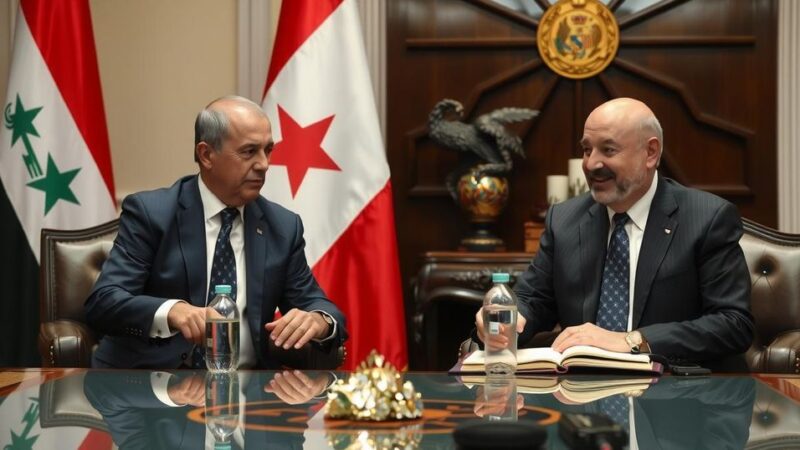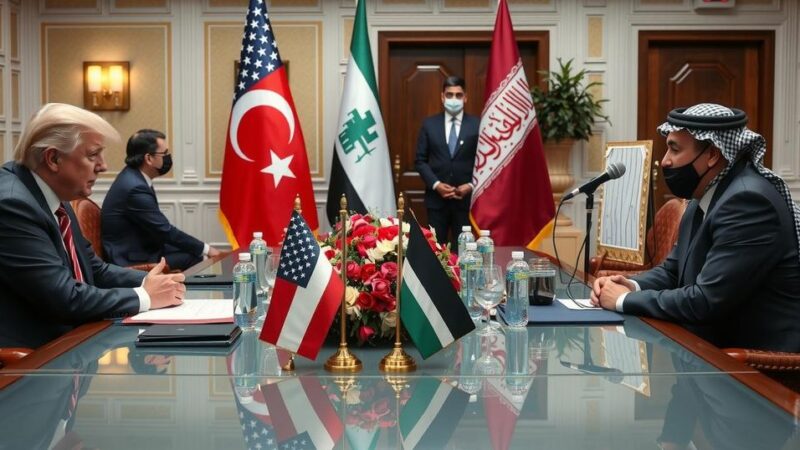Qatar reaffirms its commitment to supporting Sudan amid a catastrophic humanitarian crisis caused by ongoing conflict. Lolwah Al Khater, Qatar’s Minister of State for International Cooperation, met with Sudan’s Acting Federal Minister of Health to discuss enhanced cooperation between the two nations. The United Nations reports that 24.8 million people in Sudan are in need of assistance due to the conflict, which has displaced millions and led to widespread disease outbreaks.
In light of the ongoing war in Sudan, which continues to devastate the nation and its people, Qatar has reiterated its commitment to supporting Sudan’s security and stability. Lolwah Al Khater, Qatar’s Minister of State for International Cooperation, emphasized this dedication during a meeting with Sudan’s Acting Federal Minister of Health, Dr. Haitham Mohamed Ibrahim, held in Doha. The dialogue focused on the collaboration between both nations and the ways to enhance their bilateral relations. Al Khater restated Qatar’s unwavering support for Sudan and its people, asserting the importance of maintaining the security of Sudan, safeguarding its official institutions, ensuring its stability, and upholding the integrity of its territories. The raging conflict is rooted in the power struggle between the Rapid Support Forces (RSF), led by Mohammed Hamdan Daglo, and the Sudanese army, under the command of Abdel Fattah Al Burhan, which erupted last year amid rising tensions. The humanitarian situation in Sudan is dire, with the United Nations reporting that 24.8 million individuals are in dire need of assistance this year as a result of the war. The World Health Organization has indicated that the conflict has resulted in over 20,000 fatalities, a figure likely underestimating the actual toll. Displacement has become rampant, with over 10 million people uprooted internally and another two million fleeing to neighboring countries such as Libya, Egypt, and Chad. Moreover, Sudan is contending with rampant disease outbreaks, including cholera, malaria, dengue fever, measles, and rubella. Despite prior commitments to enhance humanitarian access, tangible aid has yet to reach those in need. Recently, Doctors Without Borders (MSF) reported that due to prolonged aid blockages, it had to cease care for approximately 5,000 malnourished children in Zamzam camp in North Darfur. The organization expressed concern over the blockade of food, medical resources, and necessary supplies to this camp host to a substantial population of internally displaced persons.
The current conflict in Sudan represents a significant humanitarian crisis, accentuated by a protracted civil war that has resulted in extensive loss of life, massive displacement, and the interruption of essential services. The ongoing tensions between the RSF and the Sudanese army have compounded the situation, with international aid efforts hampered by the violence. As a result, millions of Sudanese are facing severe crises that increase the urgency for international support and intervention.
In conclusion, Qatar’s reaffirmation of support for Sudan’s security and stability highlights the urgent need for international cooperation to address the escalating humanitarian crisis in the country. With millions in dire need of assistance and ongoing conflict severely impacting the civilian population, collaborative efforts are critical to restoring stability and facilitating much-needed humanitarian aid.
Original Source: dohanews.co







